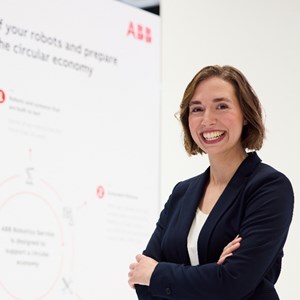2022 is the European Year of Youth. To celebrate this occasion, all throughout the year, CEN and CENELEC are conducting a campaign, presenting a regular series of interviews with young professionals active in European standardization. In the eleventh episode of the series, we get to know Martin Häuer, from Germany.
1. Please, present yourself. To what extent are you involved in standardization?
I am a researcher and activist in the domain of open-source hardware (OSH): currently, I am the chairperson of Open-Source Ecology Germany e.V. (a non-profit conducting research, development and education on the field) and I am active in a variety of open-source communities. I am also working for OpenSourceImaging on open-source MRI scanners.
It is my interest in OSH that has motivated me to approach standardization: I have been contributing to and leading standardization efforts in open-source solutions, such as DIN SPEC 3105, and several versions of Open Know-How (a metadata standard for OSH).
2. What motivated your interested in standardization?
The belief that standardization creates a common ground for actors in a certain field of technology: this is essential to enable decentralized collaboration. While this is clearly evident in conventional industrial projects, where interoperability is key, for community-based projects that is even more important.
So, we approached DIN, and as they immediately proved their openness towards the open-source world, we have been able to start a fruitful cooperation!
3. Do you think standardization (in particular, at the European level) provides some added value for your career development?
Of course! In general, I think it looks well in the CV, but for me specifically, what is more important is the networking and door-opening aspect: in the consortia I participate in, I meet many very interesting people and am offered many positions that would not be possible without the standardization projects I am and have been involved in.
4. Do you think standardization can play a role in addressing big challenges, such as the digital transition and climate change?
Absolutely. Common standards are a base for cooperation: without global collaboration on global issues, such as climate change, I don’t see how we will be able to find lasting solutions.
5. Have you had a role model or mentor in standardization? What is the best advice he/she/they gave you?
She is not properly a mentor, but Amelie Leipprand at DIN, together with the people around her, introduced me to many influential people and showed me the socio-economic value of standardization.
There have been a lot of phrases that stuck in my mind. My favourit one is: “Whoever makes the standards has the market”, which tells a lot on the power and related business models that come with standards.
6. Why should there be more young people in standardization? And what should organizations like CEN and CENELEC do to involve more of them into standardization?
The world is moving very fast since a couple of years. For the “digital native” generation, “being born before the internet” almost sounds like “being born before electricity”. To navigate these changes, we need the perspectives and idealism of the younger generation in standardization. In turn, this means we need to teach them the skills needed to orchestrate meaningful standards. It would greatly help to regularly bring standardization into education (specifically universities) and show its value as a participative, inclusive process.
You can follow the rest of the campaign here and also read the other interviews to our Young Professionals in Standardization.
Read the previous episodes of the series:
Episode 3, with Kristin Fagerli
Episode 4, with Alexandre Colombier
Episode 5, with Saharnaz Dilmaghani
Episode 6, with Jayson Shepherd
Episode 8, with Lilian Fehlmann
Episode 9, with Alessia Gaetani
Join the conversation through the hashtag #EuropeanYearOfYouth

Giovanni COLLOT
gcollot@cencenelec.eu



